2016 Nissan Altima Tires, Repair & Service
Get Started
Complete Auto Care for Your 2016 Nissan Altima
-
TIRES FOR YOUR 2016 Nissan Altima View Tire Info GET TIRE PRICING
-
REPAIR FOR YOUR 2016 Nissan Altima View Repair Info SCHEDULE REPAIR
-
MAINTENANCE FOR YOUR 2016 Nissan Altima View Maintenance Info SCHEDULE MAINTENANCE
-
OFFERS FOR YOUR 2016 Nissan Altima Limited Time Tire Offers VIEW ALL COUPONS
2016 Nissan Altima Tires
Recommended Tires | Tire Information
2016 Nissan Altima Tires Sizes, Speed Ratings, and Inflation
Not sure about your 2016 Nissan Altima tire size? Use the following chart to find information on tire size, speed rating, and inflation.
| Trim Level | Speed Rating | Inflation in PSI F/R | Tire Size |
|---|---|---|---|
| 2016 Nissan Altima Base | T | 32 PSI/32 PSI | P215/60R16 |
| 2016 Nissan Altima SV | V | 33 PSI/33 PSI | P215/55R17 |
| 2016 Nissan Altima SL* | V | 33 PSI/33 PSI | P235/45R18 |
| 2016 Nissan Altima SL* | V | 33 PSI/33 PSI | P215/55R17 |
| 2016 Nissan Altima S | T | 32 PSI/32 PSI | P215/60R16 |
| 2016 Nissan Altima SR | V | 33 PSI/33 PSI | P235/45R18 |
|
2016 Nissan Altima Base Speed Rating: T Inflation F/R: 32 PSI/32 PSI |
|
2016 Nissan Altima SV Speed Rating: V Inflation F/R: 33 PSI/33 PSI |
|
2016 Nissan Altima SL* Speed Rating: V Inflation F/R: 33 PSI/33 PSI |
|
2016 Nissan Altima SL* Speed Rating: V Inflation F/R: 33 PSI/33 PSI |
|
2016 Nissan Altima S Speed Rating: T Inflation F/R: 32 PSI/32 PSI |
|
2016 Nissan Altima SR Speed Rating: V Inflation F/R: 33 PSI/33 PSI |
* Note: these models have different tire sizes depending on vehicle options.
Recommended Tires for Your 2016 Nissan Altima
What tires are best for a 2016 Nissan Altima? Check out the following tire brands and types.
 Blizzak WS90
Blizzak WS90
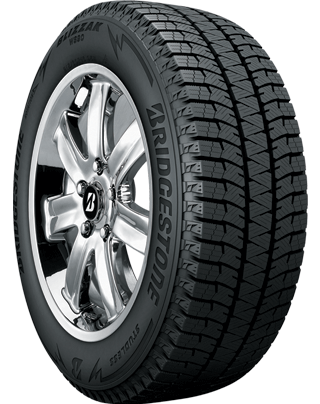
- No warranty
- Winter
- Winter
 Ecopia EP422 Plus
Ecopia EP422 Plus
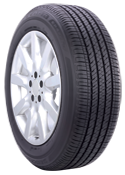
- Platinum Pact Limited Warranty
- All-Season
- Performance
 Turanza QUIETTRACK
Turanza QUIETTRACK
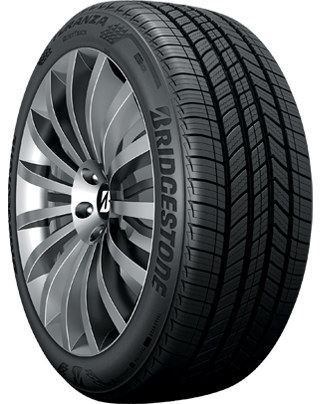
- No warranty
- All-Season
- Performance
 WEATHERPEAK
WEATHERPEAK
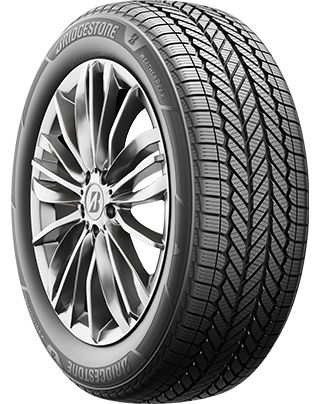
- Platinum Pact Limited Warranty
- All-Season
- Passenger Tires
 DriveGuard Plus
DriveGuard Plus
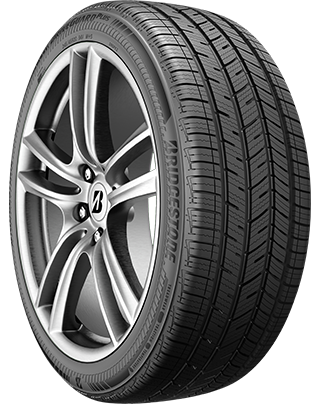
- Platinum Pact Limited Warranty
- All-Season
- Performance
 Potenza Sport AS
Potenza Sport AS
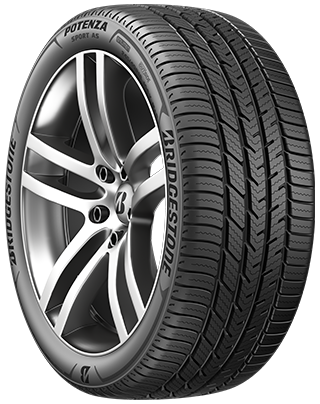
- Platinum Pact Limited Warranty
- All-Season
- Performance
 Turanza LS100
Turanza LS100
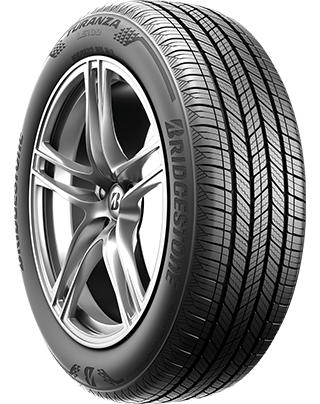
- Platinum Pact Limited Warranty
- All-Season
- Performance
 Turanza T005A
Turanza T005A
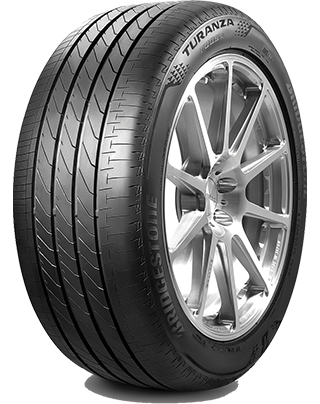
- No warranty
- Summer
- Performance
 Potenza RE97AS
Potenza RE97AS
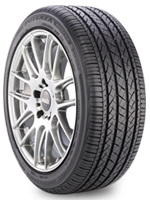
- Platinum Pact Limited Warranty
- All-Season
- Performance
 Potenza Sport
Potenza Sport
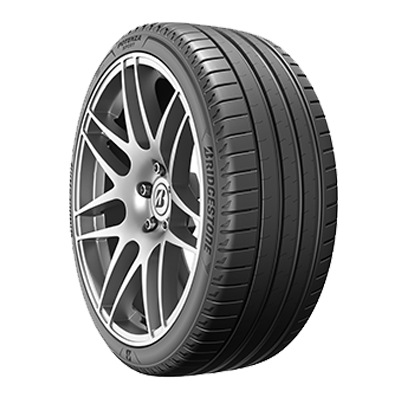
- Platinum Pact Limited Warranty
- Summer
- Performance
 Turanza ER33
Turanza ER33
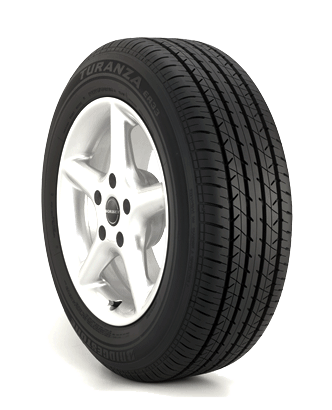
- Platinum Pact Limited Warranty
- Summer
- Performance
 Turanza EL440
Turanza EL440
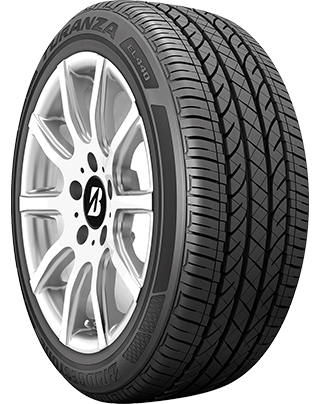
- No warranty
- All-Season
- Performance
 ALL SEASON
ALL SEASON

- No warranty
- All-Season
- Passenger Tires
 WEATHERGRIP
WEATHERGRIP
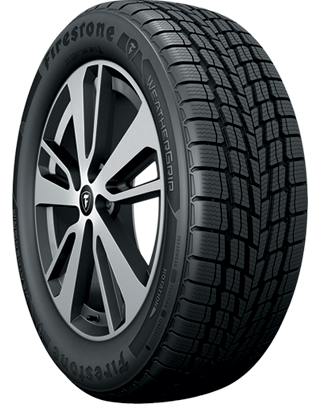
- No warranty
- All-Season
- Passenger Tires
 Winterforce 2
Winterforce 2
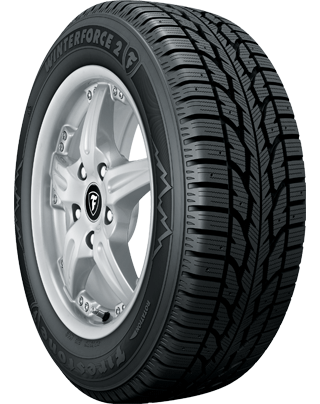
- No warranty
- Winter
- Winter
 Firehawk AS V2
Firehawk AS V2
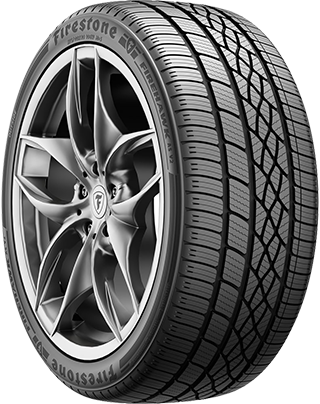
- No warranty
- All-Season
- Performance
 Firehawk Indy 500
Firehawk Indy 500
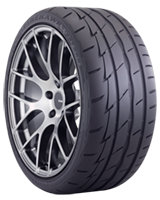
- Gold Pledge Limited Warranty
- Summer
- Performance

- No warranty
- All-Season
- Passenger Tires

- No warranty
- All-Season
- Passenger Tires

- No warranty
- All-Season
- Performance
 Extensa A/S II
Extensa A/S II

- No warranty
- All-Season
- Passenger Tires
 PROXES Sport
PROXES Sport
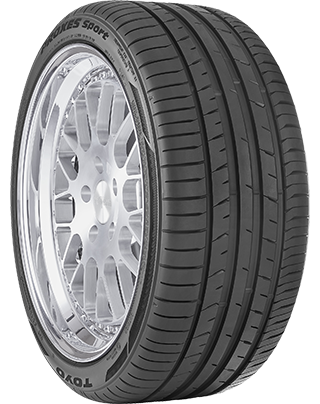
- No warranty
- Summer
- Performance
 PROXES Sport A/S
PROXES Sport A/S
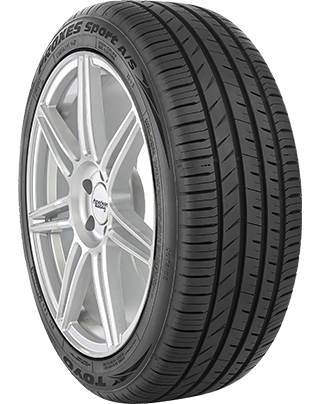
- No warranty
- All-Season
- Performance
2016 Nissan Altima Tire Information
Beyond the correct tire size, you also want to consider a handful of other factors when buying new Nissan Altima tires like how and where you drive, and how much you want to spend. When thinking about your driving conditions, consider where you live (mountains vs. city vs. countryside) and the kind of weather can catch you off-guard. (Watch out Tornado Alley!) Many drivers who live in states that experience all four seasons choose to purchase two sets of tires: one for winter and one for summer. Other drivers prefer to purchase one all-season set to limit trips to the tire shop and make sure their vehicle is prepared in the rain, sleet, snow, or sun!
Next, consider your driving style. If you're a diehard off-roader, you have very different tire needs than a highway commuter who doesn't leave the paved path. Browse Nissan Altima tires online or come to your nearby Firestone Complete Auto Care for help selecting the tire that's right for you.
2016 Nissan Altima Tire Installation & Rotation
Firestone Complete Auto Care has been a leading tire provider for more than a century. We're your tire shop and a complete service center for tire installation, maintenance, repair, rotation, and alignment! Buy 2016 Nissan Altima tires online and schedule your installation when it's convenient for you.
Questions About 2016 Nissan Altima Tires
-
Why check Nissan tire inflation? Even a tiny decrease in tire pressure could impact your safety and fuel economy. Maintaining proper tire pressure can help increase fuel economy, improve braking time, and boost tire lifespan.
-
What do the numbers on my Nissan Altima tires mean? Your tire sidewall numbers tell you the recommended load carrying capacity, speed rating, treadwear, traction, and tire size. Talk to a tire technician to learn how to read Nissan tire numbers.
-
Is there an easy way to check Nissan tire tread depth? Stay on top of your tire tread depth to help avoid a dangerous drive. You can check tread depth with a penny. Hold the penny so that Abraham Lincoln is facing you, then place your penny into a tread groove upside down. If you can see the top of Abe’s head, your tread is shallow and it might be time for new Nissan Altima tires. Grab a penny. Hold the so that Abe Lincon's head is facing you and his hair is pointing toward the ground. Then, place the penny into a tread groove. If you can see the top of Abe’s head, your tread is shallow and it might be time for new Nissan Altima tires.
2016 Nissan Altima Repair
Want more details? Choose a service below to read more about Nissan Altima repairs at Firestone Complete Auto Care.
2016 Nissan Altima Repair Information
Car repairs: for many drivers, that phrase is a dreadful one. But we work to provide you with a different experience at Firestone Complete Auto Care. When you come to us for 2016 Nissan Altima repair services, our technicians will take care of your Altima like it was their own. Before we begin any repair work, we’ll diagnose any issues and answer your questions about potential repair options. We value your trust, so we recommend only the repairs we think are necessary for your safety on the road.
How Much Are Nissan Altima Repairs?
The cost to repair your 2016 Nissan Altima depends on what kind of repair you need, costs of replacement parts or repair supplies, how much labor the repair will take, and your locale. But no matter your location, you may be able to save money with one of our many auto repair coupons or offers.
A few different aspects can influence repair costs for your 2016 Nissan Altima, like
2016 Nissan Altima Auto Repair Questions
-
Can scheduled maintenance help me avoid repairs? Don’t neglect scheduled maintenance. Sure, you could skip out on a few recommended maintenance services, but you may pay the price later. Bring your vehicle to Firestone Complete Auto Care at recommended service intervals to address minor issues before they get out of hand and keep your car running newer, longer.
-
Should I bring my Nissan in even if I can't pinpoint the problem? No, we’re not talking about finding the best jams on the radio! You know your car best, and you’re the first person who will notice if something doesn’t feel right (like new smells, sights, or sounds coming from your car). If you sense that something is 'off,' stop in for a Courtesy Check to have these symptoms checked out ASAP. Early action could help you prevent Nissan Altima repairs.
-
Do I have to get the repairs you recommend for my Nissan? Trust is more than just a saying on the wall. It’s a window underneath it. That’s why we won’t recommend services or repairs for your 2016 Nissan Altima unless we think they’re vital to your safety on the road.
Get Your 2016 Nissan Altima Brakes Fixed
You might have a strong and reliable engine in your Nissan Altima. But if you can’t stop it, it’s as good as scrap metal. If you’re experiencing squeaky brakes or a loss of braking power, don’t wait! Safe driving and responsive brakes go hand in hand. What's more, waiting for things to figure themselves out can result in more damage to your brakes and your wallet. Visit Firestone Complete Auto Care for the right brake repair for your 2016 Nissan Altima. We offer many affordable brake repairs like brake pad/shoe replacement, brake rotor/drum refinishing, brake fluid exchange/bleeding, and wheel cylinder and brake caliper installation.
Questions About Your Nissan Altima Brakes
-
What is causing my Altima to shake when I brake? If your Altima shakes when you brake, you could be dealing with warped rotors, faulty brake calipers, worn brake pads or rotors, or loose or worn suspension parts. Schedule a free brake inspection at Firestone Complete Auto Care for help diagnosing your brake issue.
-
How long can I expect my Altima brake pads to last? You can usually get around 30,000 to 40,000 miles out of your brake pads, but how and where you drive your Altima can affect this. Hauling large loads or riding your brakes can shorten their lifespan, while smoothly braking and mostly sticking to highways can help your brake pads last longer.
-
Does brake fluid leak when the car is off? Because your Altima brake system is a closed hydraulic system, it should not leak brake fluid. However, if components in your brake system have worn out or been damaged, it might cause brake fluid to leak.
Repairing Your Nissan Altima Drivetrain
Drivetrains for front, rear, and all-wheel-drive and 4WD vehicles are quite different, so you don't want to go to just anyone for drivetrain repair. You want to visit Firestone Complete Auto Care. We can take care of most 2016 Nissan Altima drivetrain components Your Nissan Altima may need driveshaft attention if you feel vibration as your vehicle accelerates, clunks when shifting, heavy vibrations in your floorboards, or resistance when turning.
2016 Nissan Altima Drivetrain Q&A
-
How do I know if my Nissan drivetrain is damaged? Hear noises toward the back of your Nissan Altima? See fluid leaking? Having issues turning? These could all be signs of drivetrain damage you don't want to ignore. Take action quickly to catch repairs or replacements before something more severe happens.
-
Why is the malfunction indicator light (MIL) on in my Altima? A multitude of problems can activate your Altima’s malfunction indicator light (better known as the check engine light), including issues with the engine, transmission, sensors, electrical system, or connectors.
-
How worried should I be about a drivetrain malfunction in my Altima? If your Altima has a drivetrain malfunction, don't wait. Get it checked out by a professional mechanic. Identifying the underlying cause and performing the appropriate repairs right away can help prevent further damage and avoid unsafe driving conditions.
Wheel Alignment for 2016 Nissan Altima
With an alignment service, adjustments are made to your Nissan Altima’s suspension system, which connects the wheels with the rest of the vehicle. In an alignment service, your tire angles are adjusted according to measurements recommended by Nissan. Why? So that your tires can make contact with the road at the best possible angle. Bring your 2016 Nissan Altima in for a wheel alignment and we'll start with an alignment check. After that, we can adjust your wheel alignment angles until they match Nissan’s recommended measurements.
Nissan Altima Alignment Questions
-
What can knock my Nissan Altima out of alignment? Hitting a pothole or curb can alter your wheel alignment. So can general wear and tear over time.
-
How often should you get a wheel alignment for your Altima? It’s usually suggested you check your alignment about every 6,000 miles or 6 months (whichever occurs first). Still, you should reference your Altima owner’s manual for Nissan's recommended interval.
-
Do you need to get your Altima wheels aligned? It’s not mandatory to get an alignment after installing new tires on your Altima, but it can be a smart decision! Proper alignment from the jump can help improve handling, fuel efficiency, and tire wear.
2016 Nissan Altima Engine Repair
If your 2016 Nissan Altima needs engine repair, our technicians will provide you with a thorough explanation beforehand. We make recommendations, but you make the final decision. If a repair can wait, we'll let you know. If it's necessary for your safety, we'll make sure you understand that, too. We seek to give you all the info you need to make a smart decision about our services. Turn to Firestone Complete Auto Care for your 2016 Altima engine repairs and you can feel confident knowing that we use Nissan-approved parts and components like the timing chain or belt, motor oil seal, sensors, or another part.
Engine Q&A 2016 Nissan Altima
-
Why does the check engine light in my Altima turn on when I start my car? It's okay if your check engine light comes on when you first start your vehicle. This is a sign that your vehicle is testing its circuits. The light should go off shortly. Bring your vehicle in if it doesn't.
-
Why is my Nissan Altima making engine noise? Unusual noises can signal a problem with your Nissan Altima engine. Tapping or knocking could mean you're low on oil. Whistling could mean a belt is misaligned or there's an intake leak. Squealing can indicate a loose fan belt, and grinding might be coming from the brakes, not the engine.
-
What could damage my Nissan Altima engine? Some driving habits are not so great for your engine. These include driving on a near-empty gas tank, flooring the gas pedal while the car is in Park, or accelerating too quickly, too soon. Protect your engine’s performance and efficiency by distancing yourself from these habits.
Tire Repair for Your 2016 Nissan Altima
If your 2016 Nissan Altima is in need of a tire inspection or possible flat tire repair, Firestone Complete Auto Care has your back. In some cases, a tire doesn’t have to be replaced – it can be plugged and patched with a simple repair. Depending on the damage, though, a repair might not be the right move. Our technicians can determine which option is best for your situation. We’ll begin by taking a look at where the damage is, the type and extent of the tire damage, and how all of your tires are wearing.
If we determine that your 2016 Nissan Altima tire can be safely repaired, we’ll get to work on the steps to fix it: (1) Take the tire off the wheel for easy inspection, (2) use a filler to close up the puncture (this is to keep moisture from getting in), and (3) re-seal the inside lining of your tire so that air won’t escape.
Frequently Asked Nissan Altima Tire Repair Questions
-
How soon should I have my flat tire repaired? Driving on a flat tire is not a good idea. Your Altima engine will keep running with a flat tire, but you could damage your wheel by continuing to drive on a flat.
-
Can I use an emergency/temporary sealant to fix my Nissan's flat tire? Temporary sealants will solve your problem… for a little bit. If you’ve seen temporary or emergency tire sealant before (it usually comes in a can), it can be tempting to turn to this as a solution for your flat tire. Keep in mind that these fixes could buy you some time to get to Firestone Complete Auto Care for a proper repair, but they could also cause some harm in the process (for example, damage to your TPMS). Plus, using a product like this could void your tire warranty.
-
What can cause Altima tires to keep losing air? Your Altima tires might keep losing air due to a leaking valve stem, puncture or hole in the tire tread or sidewall, or damaged wheel.
Maintenance for Your 2016 Nissan Altima
When it comes to your Nissan Altima, how you treat your car makes all the difference in its performance. With proactive maintenance, your Altima could be on the road well past the 200,000 mile mark.
2016 Nissan Altima Maintenance Information
Instead of waiting for an issue to arise with your Altima, you can stay ahead of problems before they even begin. It’s as easy as following the recommended maintenance schedule that’s been written specifically for your 2016 Nissan Altima! This recommended maintenance schedule is written by the auto manufacturer, Nissan themselves. Scheduled maintenance services can vary depending on driving conditions, climate, and other factors; however, recommended maintenance usually includes services like tire rotations, vital fluid checks/exchanges, filter changes, brake pad replacement, and oil changes. Scheduling routine service appointments is one of the best ways to help extend your Altima's life, keep you safer on the road, and maybe even save you the headache of dealing with common 2016 Nissan Altima problems in the future.
Learn About Vital Maintenance Needs for Your Nissan Altima
Head to your nearest Firestone Complete Auto Care in your 2016 Nissan Altima for factory-recommended routine maintenance and our technicians will jump right in with a Courtesy Check. This Courtesy Check can establish a baseline of what may need to be addressed during your service appointment. During a Courtesy Check, we’ll always check your battery, then we’ll move on to inspect your Altima’s head and tail lights, tires, fluid levels, alignment, and windshield wipers.
Firestone Complete Auto Care is your one-stop shop for 2016 Nissan Altima maintenance and repairs. We can help you keep your vehicle (and your life!) running smoothly. Many of our locations have weekend and evening hours for your convenience.
Questions About 2016 Nissan Altima Maintenance
-
What do I do if I hit a pothole in my Nissan Altima? Watch out for pothole damage. If your 2016 Altima is pulling to one side or the other, your tires or suspension system could be calling out for help.
-
When does my Nissan Altima need high mileage oil? If your Nissan Altima has ticked past 75,000 miles, consider switching to high mileage oil at your next oil change to give your engine what it needs to go another 75,000 (or more!). High mileage oil: make it a high priority!
-
Can Nissan dashboard warning lights wait? Don't ignore dashboard warning lights! Bring your Nissan Altima in for a diagnostic code scan as soon as a dashboard warning light flashes on, whether it's your check engine or battery light. Dashboard lights alert you to trouble under the hood.
The Right Battery Size for a 2016 Nissan Altima
Not sure what battery to get for your Nissan Altima?
| Battery | Engine | Warranty | Cold Cranking Amps | |
|---|---|---|---|---|
| 26R-3 | V6/3.5L | Replacement 24 months | Performance months | 575 |
| 35-2 | V6/3.5L | Replacement 36 months | Performance months | 640 |
| 35-AGM | V6/3.5L | Replacement 36 months | Performance months | 650 |
| 26R-3 | L4/2.5L | Replacement 24 months | Performance months | 575 |
| 35-2 | L4/2.5L | Replacement 36 months | Performance months | 640 |
| 35-AGM | L4/2.5L | Replacement 36 months | Performance months | 650 |
2016 Nissan Altima Car Batteries
On average, auto batteries last anywhere from three to five years. Don’t get stranded by your Altima’s car battery. Replace it regularly instead! Look out for symptoms of a faulty car battery. A slow engine crank, a blinking battery or check engine light, swollen battery case, corrosion-covered posts, or dim headlights can all be signs that your battery is on its last leg.
Or, you can get a complimentary battery check at your nearest Firestone Complete Auto Care. Drop in for a free battery check and, if needed, get your Nissan Altima a replacement battery. Car batteries are only one of our many strong suits. Our expert technicians understand Nissan service recommendations for Altima car batteries’ reserve capacities and cold cranking amps. Get help figuring out the battery size that matches your vehicle, and schedule a weekday or weekend battery replacement service for your car.
Answers to Your Nissan Altima Car Battery Questions
-
Why won’t my Nissan Altima battery hold a charge? A battery is in its final hour when it will no longer hold a charge. The battery may be too old. Or, you may have been leaving your car doors ajar and the cabin light at night. Stop by for a complimentary battery check at your favorite Firestone Complete Auto Care and get a handle on your car battery’s health.
-
How long can I expect my car battery to last? Car battery lifespan varies depending on a few factors, including driving conditions, accessories, how well it’s maintained, and the type of battery. On average, a car battery lasts about three to five years.
-
Why is there white, flaky stuff around my Altima’s battery post? A chemical reaction between battery acid and the air can cause a white, crusty buildup to form on the terminals of your Altima car battery. This buildup — known as corrosion — can impede the flow of electricity and cause a range of issues, from poor performance to premature battery failure.
Oil Changes for 2016 Nissan Altima
Nissan recommends having your 2016 Nissan Altima’s motor oil changed at regular intervals. Outside of Nissan-recommended oil change intervals, your Altima may need an oil change if your check engine light is on, you hear knock knock knock coming from the engine, smell oil inside the vehicle, or notice an unusual amount of exhaust. You may also need an oil change more frequently than Nissan recommends if you haul heavy loads, frequent dusty roads, enjoy off-roading, or go long distances at low speeds.
Whether it’s synthetic, conventional, or a blend of both — your local Firestone Complete Auto Care has the right oil for your Nissan Altima. Check your owner's manual and talk with a technician to select the right Nissan Altima oil, whether it's Quaker State® Advanced Durability™ conventional oil, Pennzoil® High Mileage Vehicle® motor oil, Pennzoil Platinum® Full Synthetic motor oil with PurePlus™ Technology, or Shell Rotella® heavy-duty engine oil. During an oil change, a technician will change your Altima's oil, replace and recycle the old oil and filter, inspect the rest of your car’s filters, refill vital car fluids, and perform a courtesy inspection on your entire vehicle. Let the experts take care of your Altima’s engine by making an oil change appointment today.
2016 Nissan Altima Oil Change Questions
-
What does it mean if my Nissan Altima oil light comes on? Your Nissan Altima oil change reminder light may come on if you're overdue for an oil change. The oil pressure light will typically come on if the oil level in the engine is too low, the oil pump is failing, you have a clogged oil filter, or there's a faulty oil pressure sensor.
-
Can I change my Nissan oil on my own? Changing your own oil isn't as convenient as you might think. It requires special tools and old oil must be disposed of properly. Having your oil professionally changed reduces the chances of something going wrong with the oil change, but also with your vehicle down the road.
-
Why is my Nissan Altima spewing blue or gray exhaust smoke? You could have an oil leak and have a case of burning oil. Looks like it’s time for a professional to take a look. The leak could be the result of worn valve seals, fried piston rings, or old cylinder walls.
Engine Tune-Up Service for Your 2016 Nissan Altima
Regular engine tune-ups can optimize your Altima’s power on the road. Your nearest Firestone Complete Auto Care location has several options to choose from when it comes to Nissan Altima engine tune-up services. The standard Firestone Tune-Up is one service option. It includes a complete visual inspection of engine components, installation of new spark plugs, and a lifetime warranty on parts*. The second service focuses on your Altima's filters, specifically replacing the air filter and fuel filter. Yet another service is a fuel system cleaning process, which involves removing varnish, dirt, and carbon deposits that have built up inside the fuel injectors, throttle body, and throttle plate in your Altima. This can improve your fuel system’s performance (and therefore, your engine’s performance). Here’s something to remember when choosing services: the mileage and service history of your Altima can determine what kind of service it needs. Talk to a technician about your driving style, mileage, and service history to learn more about your vehicle's specific needs.
*Talk to a Firestone Complete Auto Care teammate for full terms and conditions on warranties.
Common Engine Tune-Up Q&A for 2016 Nissan Altima
-
What happens if my Nissan Altima spark plugs fail? Replace spark plugs on time or about every 30,000 miles or so. Without the spark of electricity created by spark plugs, your engine doesn’t have the combustion it needs to start — which could leave you stranded on the road. Always replace your spark plugs on time based on Nissan’s recommendations.
-
What should I do if I see leaks under my Altima? Don't ignore puddles of fluid under your Nissan Altima. It could signal a coolant leak, brake fluid leak, or an oil leak. Let any one of these leaks linger and it could cause engine damage.
-
How often do Nissan Altima fuel injectors need to be cleaned? There is no hard and fast rule on how often fuel injectors should be cleaned, and it can vary based on driving habits and fuel type. Some manufacturers may suggest including a fuel system cleaning in your regular maintenance schedule. Or you may need to clean your fuel injectors as needed if you notice signs of a fuel system problem.
2016 Altima Nissan Steering & Suspension Services
When you first drove your 2016 Nissan Altima, the ride was probably so smooth that you didn’t even think about it! Now, however, things are starting to feel a little rough. Perhaps your Altima feels bouncy, drifts to one side, or makes an unusual noise when going over a speed bump. The first sign of trouble is the best time to bring your 2016 Nissan Altima in for steering and suspension repairs. We’ll get to the source of your car problems and, if steering and suspension service is needed, we'll explain all of your options and the potential cost.
Questions About 2016 Nissan Altima Steering & Suspension
-
Why does my Nissan Altima bounce so much? Excessive bouncing in your Nissan Altima might be due to damaged struts or shocks that are unable to absorb road bumps effectively, causing your vehicle to feel more like a pogo stick than a smooth ride.
-
What can cause the front end of my Altima to dip forward when I apply the brakes? The forward momentum and weight transfer to the front wheels during braking can cause your Altima's front end to dip forward. A damaged or faulty suspension system may fail to distribute the weight and force effectively, causing the front end to dip even more.
-
What role do tire pressure and tread depth play in my Nissan's suspension? Maintaining your tires can help reduce strain on the suspension, nd also let you know when it's time to replace your tires. A faltering steering and suspension system could lead to uneven tire wear.
2016 Nissan Altima A/C Service Near You
Our technicians will work to solve your 2016 Nissan Altima A/C problems to the best of their ability. During this initial A/C performance check, we’ll look at the state of your 2016 Nissan Altima’s A/C system to see if repair work is required. This check will include an examination of system pressure, a visual inspection, and a leak test.
While your 2016 Nissan Altima’s air conditioner is being serviced, we’ll also do an A/C evacuation and recharge. To start this process, a technician will flush out the old refrigerant from your vehicle’s A/C system. Then, they’ll perform an evacuation (also known as a discharge) on the entire system per Nissan guidelines. The A/C system is recharged with new refrigerant.
2016 Nissan Altima A/C System FAQs
-
Why do I get hot air from my Altima A/C? If your car’s air conditioning isn’t blowing cold air at all (or it tries, then turns warm), you could have a clogged expansion valve, a faulty compressor clutch, a leak, or a malfunctioning fuse in the system.
-
What causes A/C system leaks? To put it simply, age and moisture are some of the main causes of leaks in your A/C. Over time, rubber gaskets and seals can wear out, which pushes much-needed refrigerant out of your Altima’s A/C system — and lets outside moisture get in, which can take a toll on internal A/C components.
-
What is causing my Altima’s A/C to only work when the car is in motion? Damaged or worn components in your Altima’s electrical or air conditioning system can cause the A/C to only work when the car is moving. You may be dealing with low coolant or a faulty cooling fan.
Transmission Services for 2016 Nissan Altima
Your transmission carries power from the engine to the wheels so that you can drive at the speed you desire. Because of the transmission’s responsibility to translate the right dose of power into the right amount of speed, a small transmission issue can put a big dent in your Altima’s performance. Nissan Altima transmission problems can present themselves as shifting delays, grinding when accelerating, the car shaking on the road, or a burning smell or whistling sounds coming from under the hood. If you don’t pay attention to Nissan Altima transmission trouble your could suffer a loss in fuel efficiency or discover that your Altima’s not even driveable. Our expert techs are familiar with 2016 Altima services and perform them according to Nissan-recommended specifications. If you think there’s something wrong with your Altima’s transmission, schedule an appointment at your local Firestone Complete Auto Care to help keep your engine running at peak performance.
2016 Nissan Altima Transmission Q&A
-
How often does my Altima transmission fluid need to be checked? Maintaining your Nissan Altima transmission fluid is one of the best ways to maintain your transmission's health. A general rule of thumb is to have your transmission fluid checked and changed about every 30,000 to 60,000 miles, but that timeline can change if you're hard on your Nissan. Leaks or low transmission fluid are easy to spot and affordable to repair.
-
Can my Nissan Altima leak transmission fluid? Yes, your Nissan Altima can develop a transmission fluid leak. As your Altima ages, parts of the transmission system might wear out or break down, leading to a leak and possible transmission issues. Common causes of transmission fluid leaks include worn seals, a damaged transmission housing, a loose or cracked transmission pan, an overfilled transmission, or faulty transmission lines.
-
Can I drive my Nissan Altima with a transmission fluid leak? Driving your Altima with a transmission fluid leak is highly discouraged. Transmission fluid is vital to the smooth operation of your transmission system, and a leak can put the entire system at risk. A transmission fluid leak may lead to decreased performance, overheating, and possibly even transmission failure.
2016 Nissan Altima Inspections
Every service performed at Firestone Complete Auto Care includes a multi-point Courtesy Check. The technician will begin by testing your Nissan Altima's battery to find out how much charge is remaining on it. We’ll follow the battery inspection with a visual check of your Nissan Altima’s filters, lights, wiper blades, fluid levels, belts, hoses, tires, and alignment.
While every visit to your local Firestone Complete Auto Care includes a Courtesy Check, you can also request a Complete Vehicle Inspection for your 2016 Nissan Altima if you suspect there may be a bigger problem. In addition to a visual check of everything that's included in a Courtesy Check, a Complete Vehicle Inspection also includes a hands-on examination of your steering and suspension system, brakes, and exhaust components. With this inspection, we want to help you stay on top of any issues that may require preventative maintenance.
Depending on where you live, you may be able to complete your vehicle’s safety tests or state inspection at your nearest Firestone Complete Auto Care. Inspections are performed on a state-by-state basis and requirements vary.
2016 Nissan Altima Vehicle Inspection Q and A
-
How do I know if I should have an inspection on my Nissan Altima? You drive your car, day in and day out, so you know it best. If you notice unusual engine noises or you can’t shake the feeling that something is 'off,' start with a Courtesy Check to stay ahead of potential issues.
-
My 2016 Nissan Altima failed the state inspection test. Can you fix it? Don’t panic! Come in for a complete inspection today and we’ll find (and repair) the root cause before you have your vehicle retested.
-
When should I get a complete vehicle inspection for my Nissan Altima? You should bring your Nissan Altima in for a full vehicle inspection if something weird happens and you can’t find the problem. A new dashboard light might come on, you may hear strange sounds under the hood, or your steering might feel off. A complete inspection is also a great idea before a road trip for added peace of mind.
Radiator Service & Repair for 2016 Nissan Altima
Keeping up with regular radiator maintenance in your 2016 Nissan Altima is a huge factor in the longevity of your engine. In fact, Nissan recommends replacing coolant/antifreeze at specific intervals, but it’s a good idea to keep your eyes open for any indication that your radiator is failing. You could be on the verge of a radiator-induced engine breakdown if you notice leaking coolant, overheating, or an illuminated low coolant dashboard light.
At Firestone Complete Auto Care, we start by performing a thorough inspection of your Nissan Altima cooling system. Then, we’ll move on to a machine-powered coolant exchange. Finally, we’ll refill the flushed sealants, lubricants and chemicals, then do a pressure check to catch any possible leaks. From the radiator cap to the heater core, your 2016 Nissan Altima is in good hands at Firestone Complete Auto Care.
2016 Nissan Altima Radiator Q&A
-
Why is the coolant light on my Nissan dashboard on? Your engine might be about to overheat. If your low coolant light is on, pull over in a safe area and wait for your engine temperature to go down. Once it’s safe to do so, bring your car to your nearest Firestone Complete Auto Care to have the coolant system inspected.
-
My Altima overheated! What can cause that? One of the main reasons your Nissan Altima engine might overheat is because you don’t have enough coolant. Other causes include a clogged radiator, a damaged cooling fan, a malfunctioning thermostat, or a faulty water pump.
-
What is making my Altima radiator sound like it’s boiling or rumbling? There could be air pockets in your Altima’s cooling system. You might also have a clogged radiator or faulty radiator cap (this last one is an easy fix!).